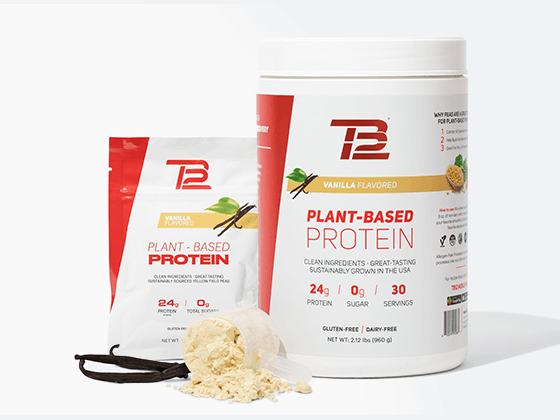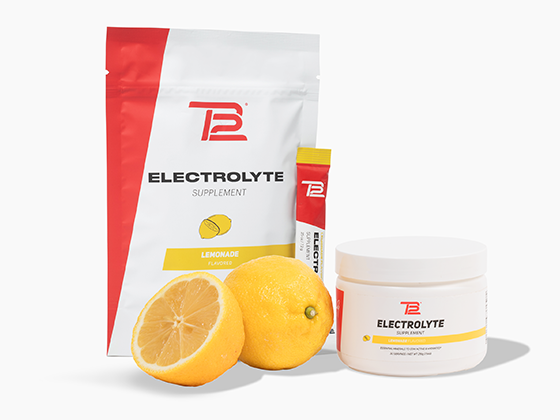What happens to your body after a demanding athletic event?
You crossed the finish line—congratulations! Whether you’ve just completed a marathon, an Ironman, or some other athletic feat, take a moment to bask in your massive accomplishment. Now, after months of intensive training, your attention will shift from preparation and execution to recovery and rebuilding. You’ve just asked your body to work extremely hard—if you’ve completed a marathon we’re talking, on average, somewhere between 55,000 and 63,000 steps of pounding the pavement.
Read on to learn about what happens in your body minutes, hours, and days after finishing a race. By understanding what’s going on in your body physiologically after finishing a marathon, you’ll be better equipped to aid your body in recovery.
Remember, the more thoroughly you’ve prepared for the marathon, the more seamless your recovery will be. And check-out our Marathon Training Plan too!
Minutes After Finishing
As you pass the finish line, you’ll be riding that runner’s high. For however many hours you’ve been running, your heart rate has been elevated and lactic acid has been building up in your body. Your body’s cortisol levels are high from the physical stress of completing the marathon and your glycogen stores are depleted from working so hard for so long.
As your speed slows from your running pace, you may feel your muscles start to tighten. The worst thing you can do for your body in these early moments is come to a sudden halt at the finish line. Instead, slowly decrease your pace as you pass the line and focus on slowing down your breath with diaphragmatic breathing. By decreasing your speed gradually and continuing to move, you’ll reduce your risk of acute muscle damage and you’ll kickstart the process of flushing out the toxins from your legs.
Once you stop running, your body heat will fall even though you’ll likely still feel warm. Use the foil blanket given to you at the finish line to retain heat. Change out of your sweaty clothes into clean and dry clothes as soon as possible. Some runners experience minor bloating due to the amount of air you’ve inhaled while running so take small sips of water and deep breaths to minimize stomach discomfort. You may also be experiencing dehydration and/or hyponatremia so even though you may feel queasy, try to quickly begin refueling with protein and electrolytes.
Hours After Finishing
While your elevated cortisol levels may have served you well as you pushed towards the finish line, prolonged cortisol in the body can make you more susceptible to injury and illness. Within a few hours of completion, soak in some cold water before taking a warm shower. The cold water will help temper the inflammation building in your body, slow further damage to muscles, and boost blood circulation. If you aren’t able to take a shower right away, at least elevate your feet to drain some of the blood from your worn out legs and feet.
Your testosterone levels will drop. While many people solely think of testosterone as a male hormone, testosterone is a critical hormone for both male and female athletes. It’s an anabolic which means it triggers processes that build muscle tissue and assist with recovery. Testosterone also stimulates red blood cell production, which transports oxygen from the lungs into the muscle tissues. Don’t worry too much about this—your levels will normalize within a few days.
Days After the Race
Due to Delayed-Onset Muscle Soreness (DOMS), you may not feel sore until the next day. Most people experience the height of muscle soreness somewhere between 24 and 72 hours after completion. Your levels of the creatine kinase (CK) enzyme will remain elevated for a few days as a result of muscle damage which causes CK to leak into your bloodstream.
Go easy on yourself during this time—you’ll want to avoid doing other intense workouts, and your muscles will seriously benefit from gentle movement and light pliability work with a foam roller or ball.
Counterintuitively, you may have difficulty sleeping for a few nights after completing the marathon due to elevated cortisol and norepinephrine. You can take TB12 Recover and TB12 Sleep in the evening to assist with sleep and optimize your sleep routine.
Many runners pickup a cold or minor upper respiratory infection the day or two after finishing the marathon, as your immune system is suppressed from the extreme cortisol. Give your body nutrient dense food, water, and rest and you’ll feel better soon.
After training so long for the marathon, your body might crave different types of movement, so once your soreness wanes it’s a great time to try a new type of workout—or, conversely, start training for your next marathon.
Keep Going!
Let's face it, the purpose of optimizing your recovery is so that you can keep your body healthy and prepare it for your next activity - whether that's another marathon, or a brand new challenge.
Whatever you decide to do next, we can be your trusted recovery partner - with tips from our blog and plenty of thoughtfully-formulated recovery tools.





